- 当前位置:
- 首页>
- 活动>
- ���������������
���������������
CCG持续关注国际关系议题,推动中国与全球化的发展,积极开展国际交流,充分发挥智库“二轨外交”作用,在巴黎和平论坛、达沃斯世界经济论坛、慕尼黑安全会议等重要国际政策与意见交流平台上组织分论坛、边会、圆桌会议、晚宴等活动,促进国际政商学界对话,凝聚共识;CCG积极与各国政界、智库界、工商界开展“二轨外交”活动,每年常态化赴多国调研与交流,促进中外关系攸关方互动,保持与多国政策圈层的沟通渠道。
-
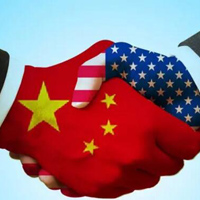
【CGTN】Wang Huiyao: Ten ways to enhance Sino-US relations
Guest commentary by Wang HuiyaoOn Friday, Donald Trump took the oath of office and was sworn in as the 45th president of the United States. As an outlier in the political arena, Trump has stirred tremendous attention from both within and outside the US with his strong personality, political perspective and anti-establishment statements. It is believed that major policy changes will be made under Trump’s leadership, and we may even observe a growing trend of anti-globalization, inevitably marking a new chapter in Sino-US relations.US President Donald Trump, speaks during the Armed Services Inaugural Ball in Washington, DC, on Jan. 20, 2017. Senate Democrats and Republicans are tussling over how many of Trump’s nominees can be confirmed on his first day in office, with Republicans threatening to work through the weekend to break the logjam. /CFP PhotoAs the world’s two largest economies, China and the United States are the main engines for the global economy and the two most important members of many regional and international organizations. The relationship between China and the US in the economy and trade as well as people-to-people exchanges is closer than ever, and neither side could stand the cost of cutting these ties. Both countries should recognize that under the Trump administration, they still need to continue with a working relationship that benefits not only themselves, but also the rest of the world.I believe that China and the US should take precautions to prepare contingency plans, strive to maintain the overall smooth development of bilateral trade, cultural exchanges and relations in security and global governance. Both the Chinese and US government can be more active in strengthening the relations in 10 ways:1. Initiate a China-US summit, and invite Trump’s team to visit China at the earliest opportunity. It is best for Washington and Beijing to establish more contact and settle on a consensus on the challenges they face.2. Prioritize economic diplomacy, and try to strengthen cooperation in international trade and overseas investment. The two countries are major trading partners but have yet to negotiate and sign a free trade agreement. Thus, continuing negotiations on a bilateral investment treaty and progressing to signing the deal is crucial to offering institutional support to bilateral economic and trade relations.3. Considering the essential role US multinational corporations can play in Sino-US relations, China should work with these corporations to make clear the importance of China-US relations.4. Enhance regional economic collaboration with the US, including by jointly initiating the establishment of the Free Trade Area of the Asia Pacific (FTAAP). Since Trump put the TPP agreement in a coma by announcing his intention to withdraw the US from that partnership, China should send signals to the new president’s administration on the potential to unlock opportunities with the FTAAP.5. Promote more China-US cultural exchanges, such as in tourism, education, academics, culture, scientific research and public health. Both countries have unique characteristics to complement each other.6. Invite the US to join the AIIB. Collaboratively, China can work with the US to foster a stronger and wider collaboration in infrastructure construction involving the US, including by jointly exploring markets in other countries.7. Further cooperation with the state governments of the US. Possible events may include an annual summit gathering the 31 provincial governors from China and the 50 US state governors.8. Pay more attention to collaboration with Southeast Asian countries, Japan and South Korea, creating common trust and easing regional tensions through leveraging common cultural traditions and values and encouraging economic integration.9. Enhance US-China cooperation in global governance. Even if the two countries have different global strategies (China has assured the international community that it will embark on the road of peaceful development while the US treats China as a potential competitor), they can still assist the international community in upgrading and refining the global governance system through collaborative efforts.10. Think tanks in both countries should actively engage in “Track-II Diplomacy,” providing policy advice for both Chinese and American governments.In summary, as President Xi Jinping has said, cooperation is the only correct choice for China and the United States – it is in both countries’ interests to build a sustainable collaborative relationship.About Author Dr. Wang Huiyao is president of the Center for China and Globalization, the largest independent think tank in China, with over 100 researchers and members of staff.From CGTN, 2017-1-22
2017年2月6日 -
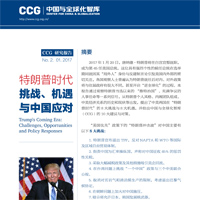
[科技日报]中国与全球化智库(CCG)报告:基础设施建设或成中美合作新亮点
中国与全球化智库(CCG)报告指出基础设施建设或成中美合作新亮点。 在特朗普宣誓就职美国第45任总统之际,中国与全球化智库日前在京发布《特朗普时代:挑战、机遇与中国应对》报告。报告指出,特朗普将大规模基础设施建设作为其施政框架主要内容之一,并任命华裔赵小兰为交通运输部部长。尽管还没有有关基础设施建设的具体数字公布,普遍预计规模将在5000亿—10000亿美元之间。中国作为世界领先的基础设施建设大国,在特朗普政府任内,基础设施合作有望成为中美未来合作一大亮点。 美基础设施老化急需改善 美国在二战后建成了规模巨大的州际高速公路网络、机场群、水运网络、大型港口设施,曾经是美国引以为傲的国家资本,特别是公路设施,让美国成为“车轮上的国家”。半个世纪后,其中许多设施已经出现了严重老化,在运铁路里程不断缩短。美国土木工程师学会(ASCE)的一份报告显示,美国基础设施评级仅为“D+”,ASCE估测,将美国基础设施改善至良(B),至少要花费3.6万亿美元,与现有计划资金存在45%的缺口。其中,仅“公路、桥梁交通设施”一项,就需要8500亿美元,“学校”一项则需额外的2700亿美元。 美国公共资本包括来自联邦政府和州及当地政府的投资,但其中主要部分(93%)来自州政府和当地政府。近些年,州政府与本地政府的基础设施开支已经下降到GDP的2%左右,仅为20世纪60年代后期峰值的2/3。研究表明,美国经济增长有越来越大的一部分,是在少量连接的城市枢纽创造出来的,如洛杉矶和波士顿与纽约之间的走廊。基础设施老化、公共教育质量衰弱、蓝领工人技能退化,正是“铁锈地带”丧失发展机遇的部分成因。 中美基建领域合作空间广阔 中国在基础设施建设方面拥有多层次的优势:改革开放以来,中国长期保持较高水平的固定资产投资。近年来,中国形成了一批具有雄厚的设计、施工和管理能力的企业。2015年美国《工程新闻纪录》(ENR)显示,共有65家中国内地企业入围全球最大250家国际承包商。中国铁路工程总公司、中国建筑工程总公司、中国铁路建筑总公司、中国交通建设集团包揽了世界前四大工程承包商。 此外,中国拥有超过3万亿美元的外汇储备,并在近年越来越多地用于境外基础设施投资。2014年,中国为新设立的“丝路基金”出资400亿美元,用于基础设施投资;同年,中国认缴500亿美元牵头成立亚洲基础设施投资银行(AIIB),该行的宗旨在于促进亚洲区域的互联互通。 中国拥有强大的建筑机械、装备制造和产量巨大的钢铁、水泥等建材行业。事实上,中国企业早就希望进入美国基础设施市场。1990年至2015年,中国对美国在交通运输与基础设施行业的直接投资为1.79亿美元。中国远洋海运和中海集运最早进入美国市场,中国建筑总公司等也通过并购等方式扩大了在美国的市场份额。虽然受未能获得港口设施等资产的所有权以及国家安全的政治顾虑等影响,在此领域中国对美投资仅占同期总投资额的0.3%,但中国通过数以百计的基础设施项目积累的经验和技术,为与美国未来的合作积累了实力。 2015年,中国几家铁路企业成立了中国铁路国际(美国)有限公司,准备参与美国加州高铁的竞标。特朗普政府的基础设施投资计划,将为中美两国带来很好的合作机遇:一方面为美国带来就业并改善基础发展问题;另一方面为中国的外汇投资和建筑、建材、工程装备带来新的增长点。(科技日报北京1月23日电)文章选自《科技日报》,2017年1月24日
2017年2月6日 -
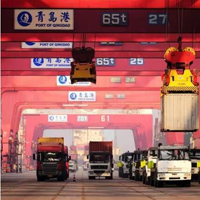
[The New York Times] Trump’s Pick on Trade Could Put China in a Difficult Spot
A container port in Qingdao, China, in December. China consistently sells $4 worth of goods to the United States for each $1 of imports. CreditChinatopix, via Associated PressSHANGHAI — As a top trade official, he limited the Japanese cars and steel coming into the United States. He halted talks with China on a deal that would encourage investment between the two countries. And he tried to give American exporters an edge with special tax breaks.When it comes to problems troubling working-class Americans and manufacturers, Robert Lighthizer, President-elect Donald J. Trump’s nominee for trade representative, has historically blamed the United States’ trading partners, advocating aggressive retaliation for what he regards as widespread abuses of free-trade rules.It is a philosophy that he developed in the 1980s as a deputy United States trade representative and fine-tuned in the decades-long career that followed as the main trade lawyer for the American steel industry. Now he appears ready to train that focus sharply on China.“It seems clear that the U.S. manufacturing crisis is related to our trade with China,” Mr. Lighthizer said in testimony to a congressional commission in 2010.Over the years, Mr. Lighthizer has consistently taken the position that foreign countries are subsidizing their exporters while quietly but systematically blocking imports to protect jobs in their own countries. His answer is to pursue a long list of trade measures limiting America’s imports — even if those actions may be barely permissible, if at all, under World Trade Organization rules.“To attack a problem as large as our trade deficit with China, U.S. officials must be prepared, at a minimum, to consider very aggressive positions at the W.T.O.,” he said.The choice of Mr. Lighthizer — and the trade tensions it underscores — leaves China in a difficult spot. He is part of a group of Trump trade appointees with close links to exactly the kinds of metal-bashing old-economy industries in which China faces the greatest overcapacity, and the toughest choices about how to close factories and lay off workers. Restrictions on exports to the United States will make those choices even harder for China.Wilbur Ross, the billionaire investor who is Mr. Trump’s choice to become commerce secretary, made large chunks of his fortune in steel and auto parts, two huge industries that in China are ramping up exports. Peter Navarro, the head of the new White House office overseeing trade and industrial policy, is a vociferous critic of globalization who has contended that American purchases of imported goods at Walmart are helping China pay for nuclear-tipped missiles aimed at the United States.The timing is bad for China.The Chinese economy is slowing despite vast amounts of fiscal and monetary stimulus. Big manufacturers in most industries are struggling with overcapacity, pushing them to sell goods overseas at cut-rate, even money-losing prices, just to cover their operating costs. Mr. Lighthizer has argued for years that the United States should keep out goods made with government subsidies or sold below the full cost of making them.“Trump naming him makes me worry the U.S. will carry out more rigid measures on trade and investment,” said Wei Jianguo, a former vice minister of commerce.Barges in China with ore to be used in the manufacturing of steel. Robert Lighthizer, the Trump administration’s choice for trade representative, had a decades-long career as the main trade lawyer for the American steel industry. Credit Kevin Frayer/Getty Images Exports are important for China. It consistently sells $4 worth of goods to the United States for each $1 of imports. That mismatch has produced a bilateral trade surplus for China equal to about 3 percent of the country’s entire economy, creating tens of millions of jobs.The benefits to China from that surplus have been increasing rapidly in the past few years. Many exporters have stopped importing components and switched to increasingly capable local suppliers for everything from high-quality steel to advanced computer chips. Multinationals have moved entire supply chains to China, and transferred the technology to run them.Many Democrats and many economists have also become increasingly disenchanted with the effect on American workers and the American economy. The Obama administration filed a long series of trade cases at the W.T.O. against China, although they involved fairly narrow policies and limited categories of goods. It has been preparing more, filing the latest trade case on Thursday over Chinese subsidies to aluminum producers.If Mr. Trump goes even further in that direction, Mr. Lighthizer will bring a long background in such actions.When he was in the Reagan administration, Mr. Lighthizer was the deputy United States trade representative overseeing industrial policy in old-economy industries like cars and steel. Since then, Mr. Lighthizer has mainly been filing anti-subsidy and anti-dumping trade cases against imports on behalf of the American steel industry.“He’s the best negotiator I’ve ever worked with on policies involving trade or tax policy,” said Timothy Regan, Mr. Lighthizer’s chief of staff in the Reagan administration and now the senior vice president of global government affairs at Corning.Mr. Lighthizer led successful efforts in the 1980s to force Japan to accept curbs on exports of cars and steel to the United States. Both were bold moves, particularly given that President Reagan at times espoused free trade. But when the W.T.O. was created the next decade, member nations agreed, with a few exceptions, to renounce imposing such export limits on other countries.The auto industry could be ripe for action again. China is an enormous exporter of auto parts to the United States. Under President Obama, trade tensions over automotive trade have already risen, and the Obama administration has won two W.T.O. cases. The cases forced China to abandon certain anti-dumping and anti-subsidy taxes on American autos and to dismantle a few, fairly narrow subsidies.“He was squarely in the trade talks with Japan,” said He Weiwen, a former commerce ministry official who is now a senior fellow at the Center for China and Globalization (CCG), an influential Beijing research group, “so maybe Donald Trump wants him to do something similar on China.”The intersection of tax and trade is a specialty of Mr. Lighthizer, who was an architect of a Reagan administration initiative to cut corporate taxes for exporters. He was previously chief of staff at the Senate Finance Committee, overseeing tax policy.In the Reagan administration, he pushed the limits of what is permissible under international trade rules. His plan allowed many American exporters to reduce their taxes by setting up overseas companies to manage their foreign sales. But the W.T.O. eventually torpedoed the effort after a challenge by the European Union in the late 1990s.Republicans now appear to be taking a similar — albeit more ambitious — tack. They are exploring how to raise corporate taxes for importers and use the extra revenue to reduce taxes for all other companies.China, as the biggest exporter to the United States, would face a major blow. But it would also affect American retailers, electronics companies and other multinationals that depend on supplies from anywhere overseas.A big obstacle for Republicans is whether the W.T.O. would declare such a tax to be a trade barrier. China and Europe effectively penalize imports by imposing a type of national sales tax, an approach the W.T.O. has approved. It is a steep 17 percent in China.But House Republicans, leery of imposing any new national taxes, want to change existing corporate tax laws instead. W.T.O. rules discourage, although they do not necessarily prohibit, modifying corporate taxes in ways that penalize imports.The W.T.O. review process, though, is lengthy. So Mr. Lighthizer and Congress could well go ahead with the tax plan, lightening the tax burden for American manufacturers as well as inflicting plenty of damage on China and the global supply chain.And the W.T.O.’s response — if it found the plan invalid — would not have much heft. Mostly, the global trade group could authorize Beijing to impose trade restrictions on the United States’ much smaller exports to China.That prospect does not scare Mr. Lighthizer very much, as he made clear in his 2010 testimony.“W.T.O. commitments are not religious obligations,” Mr. Lighthizer said, and violations “are not subject to coercion by some W.T.O. police force.” (By KEITH BRADSHER)From The New York Times, JAN. 13, 2017
2017年2月6日 -
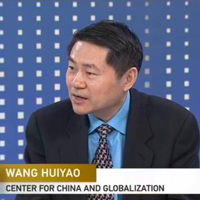
【CGTN】On Trump’s inauguration
【视频观看】On January20, Billionaire businessman Donald Trump took the oath of office as the 45th President of America at the US Capitol. Will he make the US great again? And what influences on Sino-U.S. relations by his Presidency?World Insight Studio make a discussion on the Trump’s inauguration, Dr. Wang Huiyao, the President of the Center for China and Globalization (CCG) , Tom McGergor, the Geopolitical Analyst, David Woodard, Political Professor from Glemson University and Parag Khanna, global strategist from Naitonal Univeristy of Singapore, to sharing their opinions.From CNTN, January 2017
2017年2月6日 -
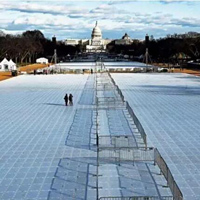
【大公网】特朗普时代来临 中国智库预测中美八大挑战八大机遇
中国与全球化智库(CCG):我们提出了中美两国在特朗普时代的八大挑战与八大机遇,并给出了十大建议与对策。特朗普就职典礼现场18日已经架起铁栅栏。法新社 大公网1月20日讯(记者严雪)1月20日,唐纳德?特朗普将在白宫宣誓就职,正式成为第45任美国总统。各国观察人士普遍认为特朗普就任后对内、对外政策将与往届政府有很大不同。19日,中国与全球化智库(CCG)就此在北京总部发布《特朗普时代的机遇、挑战与中国应对》研究报告。报告提出了,特朗普任内的中美关系在面对八大挑战的同时,也可以从八个方面加强合作,化挑战为机遇。 中国与全球化智库(CCG)主任王辉耀率先发言,他指出:“中美是全球两个最大的经济体,是世界经济的两大重要引擎,是国际最重要的双边关系。特朗普新政保持好中美两个大国的合作对中美人民来说至关重要。” 随后,他具体介绍了研究报告中特朗普上台后中美关系将面对的8大挑战。 “在‘美国优先’政策下的‘特朗普冲击波’,将可能在国际贸易、外汇汇率、台湾问题、朝核问题等8个方面对中国造成挑战:特朗普宣布退出TPP,反对NAFTA和WTO等国际及区域自由贸易体制;指责中国为汇率操纵国,声称对中国征收45%的惩罚性关税;采取大幅减税政策及其他措施吸引美企回流;在台湾问题上挑战‘一个中国’政策与三个中美联合公报;取消对页岩气和清洁煤生产的限制,考虑退出巴黎气候协定;在朝鲜问题上加大对中国施压;暗示将允许日本、韩国发展核武器;不再为无明显短期利益或他国能‘搭顺风车’的‘公共产品’买单。”王辉耀说。 另外,报告预测,中美两国之间存在8大合作机遇:双边贸易是两国共同利益广泛又深度交集领域,两国经济在某些领域已经难分彼此;中美都需要类似亚太自贸区(FTAAP)的平台,共同倡导更公平的21世纪经济规则;双边投资在过去几十年中飞速发展,产生巨大的外溢效应,促进了两个国家的就业、技术进步、经济转型;跨国公司在中美关系中一直扮演了“稳定器”的角色,他们还将继续对中美两国决策者发出理性、克制的呼声;随着特朗普基础设施计划的出炉,基础设施合作有望中美未来合作新亮点;中美之间人文交流经过三十多年的孕育,正汇聚成流,旅游、留学、移民正突破太平洋的鸿沟,促成两国深入的文化融合;美国各州拥有州经济事务高度的决策权,并且与中国经济往来密切,将是中美关系强有力的支持者,将在特朗普联邦政府时期帮助稳固两国关系;中美两国的共识和通力合作可以创造全球治理的里程碑事件,以《巴黎协定》的签署为例,中美合作将成为提供“全球公共产品”的新模式。 最后,在有关“特朗普上台将如何处理与其他国家的关系”的问题上, CCG特邀高级研究员、社科院美国问题专家吕祥援引“美国很靠近特朗普的战略专家鲁特瓦”的话回答说,特朗普战略可以归结为三条——第一撤出中东,第二联合俄罗斯,第三遏制中国。文章选自大公网,2017年1月20日
2017年2月6日 -
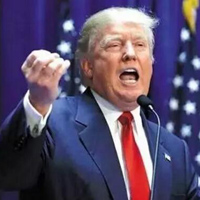
【People’s Daily Online】Trade war unlikely between China and U.S.
Trade war unlikely between China and U.S. after Trumptakes office: seminarThe incoming U.S. president Donald Trump adds more uncertainty to the Sino-US relations, but Trump’s aggressive remarks on economics and trade would not bring about a trade war between the two economic giants, which would otherwise make both suffer, experts warned prior to Trump’s inauguration on Jan. 19.According to a report compiled by Center for China and Globalization (CCG), eight challenges await China after the U.S. enters a new era, as Trump intends to withdraw from Trans-Pacific Partnership (TPP) and renegotiate international free trade systems and use tax policy and other financial measures to encourage US enterprises to move back to the States, among others.Addressing a seminar where the report was published, CCG director Wang Huiyao added that Trump’s cabinet has also seen more hawkish nominees on economics and trade.Even so, there would not be a trade war between the two countries, while trade conflicts may be unavoidable, according to experts at the seminar.He Ning, former department head on American and Ocean Affairs at the Ministry of Commerce, pointed out that economics and trade are the motivator and bedrock of Sino-US relation and Trump is in need of the world’s second largest economy to help realize his pledges in jobs and trade.“Once Trump is sworn into the White House, he will be restricted by the US political system that works to seek benefits for different interest groups for the most of the time,” He said.“The U.S. would sure suffer more even if there was such a war, since it would lose millions of jobs – to the contrary of what Trump had promised – as well as the loss of major business deals, such as with Boeing. It would also lose the opportunity to tap into a third market together with China, for example along the Belt and Road initiative,” said Chen Wenling, a chief economist at China Center for International Economic Exchanges.China and the U.S. are the largest community of shared interests when it comes to economy. With bilateral trade and investment worth billions of dollars, it is basically impossible for them to cut off the ties, Wang stressed.In response, the report suggested that more focus may be on state governments in the U.S., which are more inclined to maintain close economic ties with China than fight over political conflicts. It also emphasized on the role multinational companies could play in stabilizing the bilateral ties.President Alan Beebe from the American Chamber of Commerce in China echoed the report with the chamber’s latest survey on US enterprises in China, which saw more enterprises regard bilateral ties as “extremely important” or “important.” However, the survey also found a declining confidence in the bilateral ties under the new presidency, as only 17 percent of the enterprises said they believe improved ties after Trump took office.As to whether US companies would answer to Trump’s call to go back to the States, Beebe said at the seminar the average US enterprises act rationally and in line with their best interests, but they also value predictability the most. (By Jiang Jie)From People’s Daily Online, 2017-1-19
2017年2月6日 -
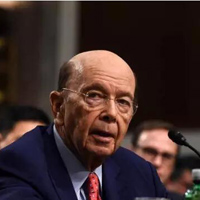
【South China Morning Post】Beijing’s patience tested by comment from Ross
Beijing’s patience tested by ‘most protectionist’ comment from RossDonald Trump’s pick for commerce secretary fires latest salvo at ChinaIn the latest criticism targeting Beijing from US president-elect Donald Trump’s team, Wilbur Ross, the commerce secretary nominee, branded China the “most protectionist” major economy.But mainland analysts said Beijing should avoid being drawn into making an immediate reaction as the comments were merely aimed at testing China’s bottom line.Ross, 79, a billionaire private-equity investor, told Congress in confirmation testimony that America’s trade partners should practise “fair trade”, echoing Trump’s earlier statements that the US would take a tougher stance against China.“We should not put up with malicious trading activities, state-owned enterprises or subsidised production,” he told the Senate Commerce Committee which will vote on his nomination.Foreign business groups operating in China have long complained of discrimination, vague regulations that are selectively enforced and Beijing’s favouring of state-owned enterprises.He Weiwen, deputy director of the Beijing-based Center for China and Globalization (CCG) and a former diplomat, said China faced challenges in treating foreign companies fairly and it would take time to restore their confidence.Lester Ross, head of the policy committee at the American Chamber of Commerce in China said China was less dependent on foreign expertise than before and some businesses felt China was less welcoming.“What we are asking for here is not a welcome or some extra benefits. What we are asking for is level playing field and fairness,” he said.Trump has nominated Peter Navarro, a well-known hardline China critic, to lead the White House National Trade Council, while Robert Lighthizer has been picked to act as US trade representative.Lighthizer was previously deputy trade representative during the Reagan administration in the 1980s and helped craft policies that curbed Japan’s exports to the US in the 1980s.“The nominations and their remarks have already signalled a tougher trade policy approach against China under Trump’s presidency,” said He, who was economic and commercial counsellor at the Chinese consulate general in New York and San Francisco.“China has its toolbox to counter extreme trade policies, but we have very little knowledge of Trump and we must collect any relevant information at any time,” said He. (By Wendy Wu)From South China Morning Post, 2017-1-19
2017年2月6日